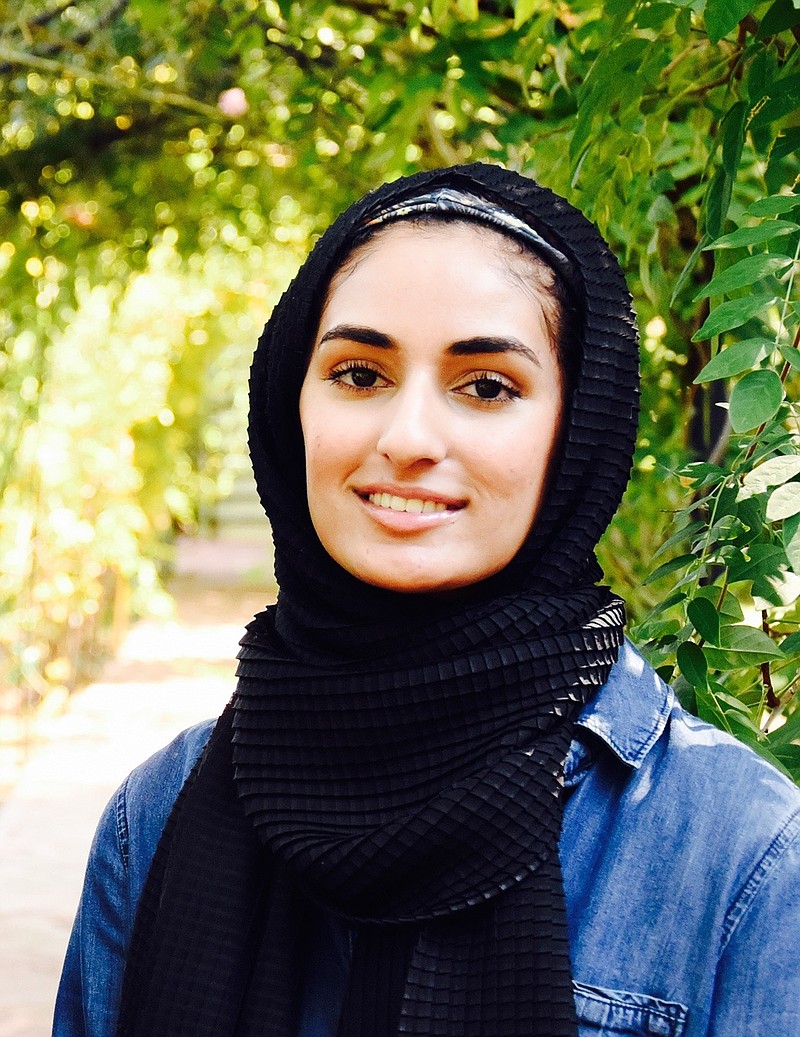The unique opportunity to hear a college professor speak for the second time captivates a classroom of typically overactive 12-year-olds. Perhaps it has to do with the cool physics experiments he did with the students the last time he had their attention.
Today, however, he is not here to teach about physics, but about the obstacles he faced in achieving a recognized space in the field. The professor, originally from Mexico, addresses a class of students, mostly Hispanic, teaching them the meaning of the word "stereotype." He artfully tells them about how despite the obstacles they may face, they can achieve success in their careers. He reaches a final slide, and reads its text out loud, saying, "Latinos can get to the top! You can get to the top!"
"Not if Donald Trump wins." One student's voice hijacks the presentation. A brief pause prompts giggles from the other students, and laughs from the adults present, including myself.
Donald Trump and his rhetoric have outrageously dominated the media ever since he announced his presidential bid.
We often forget about the inevitable young bystanders to the news we talk about. Children. They observe, listen and internalize the messages they receive from their environment.
The effect of these messages is particularly acute on second-generation immigrant children, from the students in that classroom to me in my own childhood as a Pakistani-American Muslim.
These children may be at risk of lacking the stability which comes with belonging to a large community with a common cultural heritage. In their parents' countries of origin, they are too American. In America, they are asked, "where are you from?" Too American to belong there and too foreign to belong here, they are susceptible to losing their way when faced with discrimination.
Rational and peace-desiring people of America must make efforts to educate these children about why they should view their identities in a positive light. We must empower them to trump stereotypes rather than become them.
But how? According to psychologist John Berry's acculturation model for immigrant groups, individuals can achieve true 'integration' when they consider it of value to both develop relationships with the larger society and to maintain one's cultural heritage.
I know achieving this balance is not easy - but attaining it is especially essential for individuals of Muslim heritage, who can be exploited by groups like ISIS to produce radicals who carry out terrorism domestically.
On a macro level, I have found a solace which goes beyond accomplishing Berry's latter stipulation in belonging to the Ahmadiyya Muslim Community, the largest global Muslim community unified under one leader. The guidance of this worldwide spiritual head, Hazrat Mirza Masroor Ahmad, serves tens of millions around the world, including right here in America.
In a sermon on July 29, 2016, he said, "We should try to foster love and compassion among people regardless of what religion they belong to. Instead of unjustly killing innocent people, we should bring them towards God through peace and amity. We should make Islam an abode of love and compassion and not give its opponents any occasion to attack our religion." His advice has driven the Ahmadiyya Muslim Community to unity not only within itself but also with the communities around it. In America, those words have been translated into actions through efforts such as the "Muslims for Life" campaign, which has collected tens of thousands of blood donations nationwide to honor the victims of 9/11.
On a micro level, we can help second-generation immigrants accomplish Berry's former stipulation of valuing relationships with society at large. We do this by overcoming the implications of an observation noted by Toni Morrison when she said, "In this country American means white. Everybody else has to hyphenate." We must stop treating those who look different from us as "'other." Whether this means freeing our social circles from their homogeneous trappings or simply smiling at all people as we walk, by even the smallest of our actions have the power to make a difference.
By doing our respective parts to save the children, we have the power to create an integrated America which is truly great.
Najia Humayun, a graduate of Girls Preparatory School, is an international affairs and modern languages major with a pre-law focus at Georgia Tech.
